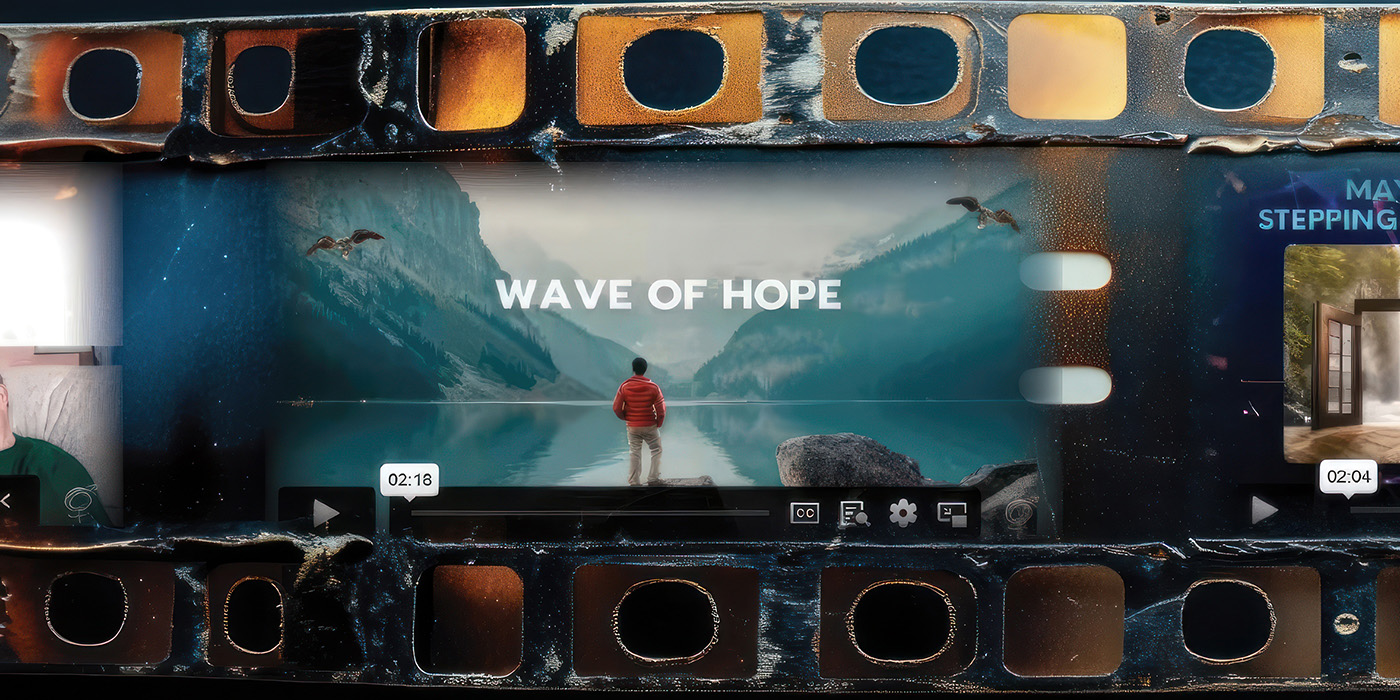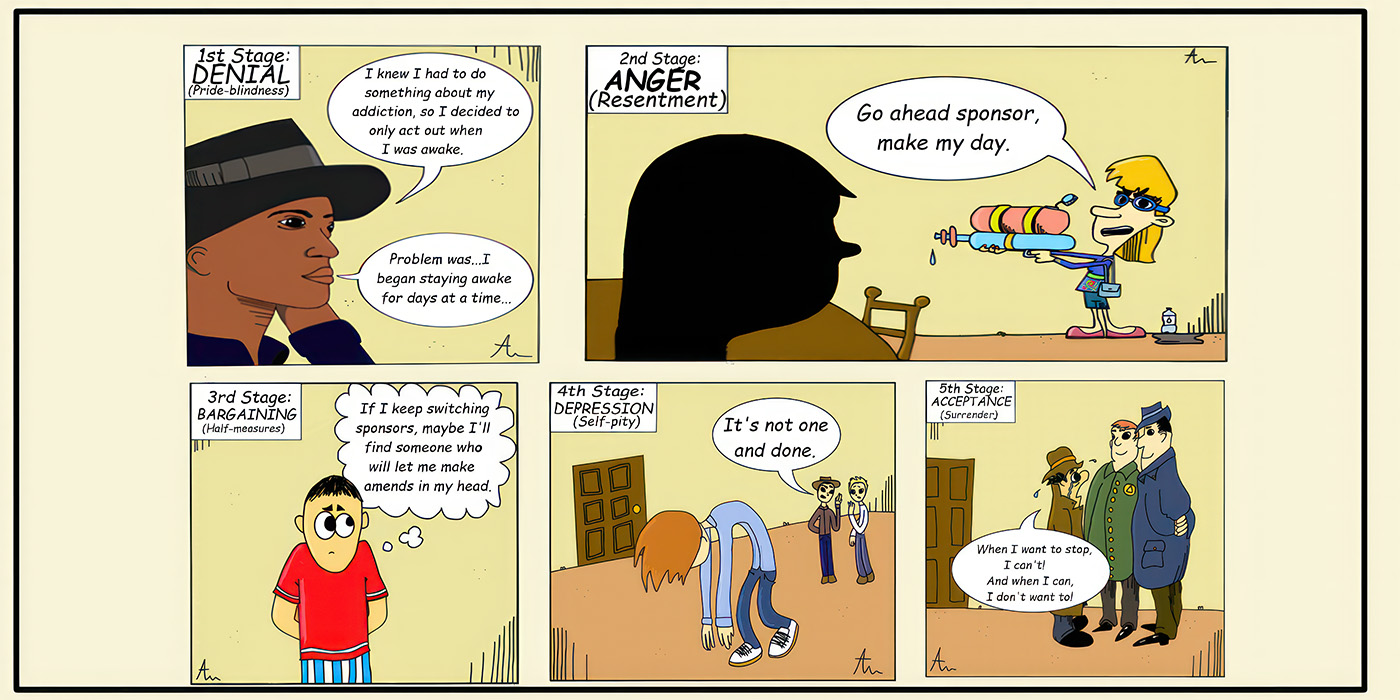
I was recently asked to write an article for the Essay on Emotional Sobriety. At first my reaction was to say “No.” I wanted to say No because I felt, deep down, that most people in SA have difficulty reaching Emotional Sobriety since they can barely reach “lust sobriety.” Then the realization came to me that instead of saying No, I needed to share my experience, strength and hope in a different way. I needed to write about the barriers to Emotional Sobriety that I have witnessed in our fellowship for the past 38 years.
I am Harvey A. and my sexual sobriety date is March 8, 1984. If you noticed I did not say my Emotional Sobriety date because that date is ever evolving. As our SA founder, Roy K., would say, “through the crucible of our experience.”
Emotional Sobriety can be seen quite clearly in Step Ten as written about in the Alcoholics Anonymous, Twelve and Twelve book. Bill W. tends to write about Emotional Sobriety also by describing what happens if you don’t have it. He uses terms such as “emotional hangover” and “emotional jags.” This is also found in Step Ten in the Twelve and Twelve.
Here are some of the blocks so many people in our program have, in my opinion, from reaching that “emotional balance,” or “equanimity” as some people call it:
- How can someone truly utilize all the Steps which can bring them to inner peace when they cannot truly take Step One? So often in our program people seem to deny the word LUST that is in Step One. They seem to substitute words related to acting out rather than what leads to acting out—LUST.
- Refusal to see our illness as a physical allergy and continuing to use, “I am bad getting good” rather than, “I am sick getting well.”
- Refusal to surrender to sponsors’ suggestions.
- Continuing to blame others and themselves for their addiction instead of seeing that it was the illness which causes the difficulties.
- When they see their character traits, they go into shame rather than seeing them as more spiritual discoveries.
- Thinking when they stop acting out they are cured rather than realizing it is a chronic allergy that needs daily care.
- Thinking that God will do it all for them rather than their need to participate in a partnership with the God of their understanding. This partnership includes using the Steps and sponsors as well as attending meetings.
When one gets freedom from LUST and diligently uses the Steps, Emotional Sobriety is usually awaiting them.
Emotional Sobriety can also exist on a group level. How can we see Emotional Sobriety in our meetings when many meetings stay in the problem rather than the solution? So often, at the Zoom meetings that I attend, people with just a few days’ sobriety will talk first and set the tone of the meeting onto the problem rather than the solution.
In Nashville, our meetings for the first many years were based on page 198 in the SA book: “All participants in the first part of this meeting will be members of SA who have been sexually sober for 30 days or more. We do this to help set the tone on recovery and program. After that, any member can share.”
How do we see an Emotionally Sober meeting when the relapsing members are being told that “it is OK.” Many of us know, down deep within us, there is a great chance that relapsing can lead to being Locked Up or Covered Up. This is only my opinion; it is based on watching many relapsing members die from suicide or end up going to jail.
For me, Emotional Sobriety has taken many years for my “top plates” to be removed. The removal process began firstly with sexual sobriety from acting out, then with lust sobriety; after that, fear sobriety, then anger sobriety, and then financial sobriety. Acting out sobriety, for me, came rather quickly; lust sobriety followed soon after. Anger and fear sobriety have come to me, but “its ugly head” still will pop up periodically. I still experience jealousy and envy at times but this is a journey, not a destination. As my sponsor would say “I’m better than I used to be, but not as well as I’m going to get.”
Let us join together to emphasize the importance of freedom from LUST and sexually acting out so that at individual and group levels, Emotional Sobriety can progressively improve. Let us all travel together on the road of emotional balance so that our spiritual awakenings will lead to a new freedom and a new happiness.
Harvey A., Florida, USA




